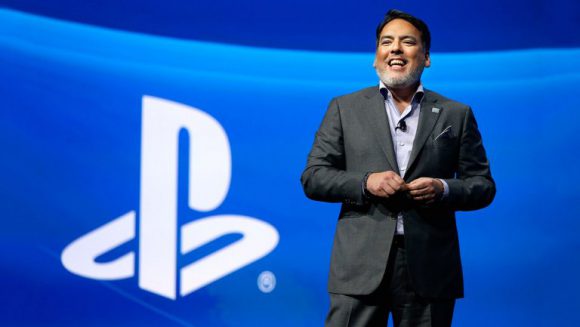
Eind vorig jaar verraste Sony behoorlijk met het bericht dat ze de E3 in 2019 zouden overslaan. De beurs zou niet langer interessant zijn voor het bedrijf en hun focus zou meer op andere momenten komen te liggen om aankondigingen te doen. Op zich een begrijpelijke keuze, maar dat maakt de beurs zelf gelijk wel een stuk minder interessant.
Sony heeft eerder al eens uitleg gegeven waarom ze de beurs overslaan en in een interview dat CNet had met Shawn Layden van Sony Interactive Entertainment Amerika, kwam dit nogmaals ter sprake. Hier legde Layden uitgebreid uit wat de beweegreden is om dit jaar (en mogelijk in de toekomst) niet meer op de beurs aanwezig te zijn.
Waar het op neerkomt is dat de E3 niet langer de impact heeft die het ooit had, mede door het internet waardoor nieuws zich vele malen sneller doet verspreiden. Daarnaast richt Sony zich op minder maar grotere titels en dat zorgt ervoor dat de E3 niet langer een moment is waarop ze echt wat nieuws te melden hebben.
De wereld is veranderd, maar de E3 niet en dat zorgt voor een andere kijk vanuit Sony op het hele gebeuren. Wat dat voor de traditionele Sony persconferenties betekent is afwachten, maar wij achten de kans groot dat er meer PlayStation Experience edities gehouden worden. Dit op momenten dat Sony echt wat te melden heeft, wat aansluit op hun visie. Maar dat is vooralsnog koffiedik kijken uiteraard.
“When we decided to take video games out of CES, back in 1995 during the PlayStation 1 era, E3 served two constituencies: retailers and journalists.
Retailers would come in — you’d see a guy come in, and he’d say, “I’m from Sears, and I handle Hot Wheels, Barbie, VHS and video games. So what are you about?” There was a huge educational component.
Then you had journalists who had magazines and lead time and jockeying for position on the cover. And there was no internet to speak of. So a trade show at that time of year for this nascent industry was exactly what we needed to do.
Now we have an event in February called Destination PlayStation, where we bring all retailers and third-party partners to come hear the story for the year. They’re making purchasing discussions in February. June, now, is just too late to have a Christmas holiday discussion with retailers.
So retail has really dropped off. And journalists now, with the internet and the fact that 24/7 there is game news, it’s lost its impact around that.
So the trade show became a trade show without a lot of trade activity. The world has changed, but E3 hasn’t necessarily changed with it.
And with our decision to do fewer games — bigger games — over longer periods of time, we got to a point where June of 2019 was not a time for us to have a new thing to say. And we feel like if we ring the bell and people show up here in force, people have expectation “Oh, they’re going to tell us something.”
We are progressing the conversation about, how do we transform E3 to be more relevant? Can E3 transition more into a fan festival of gaming, where we don’t gather there to drop the new bomb? Can’t it just be a celebration of games and have panels where we bring game developers closer to fans?”
Tja, oke. Nou ja.
Maakt mij niet uit dat zij niet meer naar de E3 gaan zolang zij maar heel goed nieuws brengen op hun Experience edities ben ik tevreden .
Amen.
Wat het wel deed was zorgen dát ze iets hadden. Een soort pressiemiddel, zeg maar. Dat is nu weg. Nu is het maar afwachten wanneer we iets te horen krijgen over nieuwe games of hardware. En het blijft op dit moment angstvallig stil.
Ik vind het prima dat Sony nu niets te melden heeft..
Rond de E3 periode zal er meer officiële nieuws komen vanuit de Sony PlayStation kamp..
Er is nu genoeg te spelen tot aan de E3..2019
Ik vind het helemaal goed.
Ik weet dat ik altijd heel erg uitkeek naar E3 en dat het heeeel vaak eigenlijk weer tegenviel. Veel gebakken lucht……. Nieuws hebben als er daadwerkelijk nieuws is lijkt me een goed uitgangspunt!
Slim! Zodra Microschoft hun volgende generatie aankondigt kan Sony er weer op reageren met o.a.;
– snellere release
– prijs verlagen/ophogen
– exclusieve content
De E3 is een traditie waar men moeilijk afscheid van kan nemen, maar niet meer in deze tijd past.
tijd voor iets nieuws.
mvg
Zal wel met kosten te maken hebben en een jongen die op een spreadsheet heeft ontdekt dat de E3 geld kost.
Voor het merk Sony is het namelijk héél goed om op de E3 aanwezig te ziin. Kan vanuit marketing geen enkele reden vinden om daar niet aanwezig te zijn.
E3 niet nodig doei
@193.190.12.xxx:
Stilte voor de stom, ook wel de PS5.
Ondertussen nog de geweldige laatste titels van de PS4.
@Phrozbug:
Geen enkele? Ik ken er genoeg.
Internet, geen E3 kosten, rond de periode van E3 info vrijgeven. Of net ervoor.
@193.190.12.xxx:
Layden geeft al aan dat ze minder, maar grotere games willen gaan maken in de toekomst.
Wat juist goed is, omdat er anders te veel games uitkomen en de markt overspoeld kan raken zoals in de jaren 80.